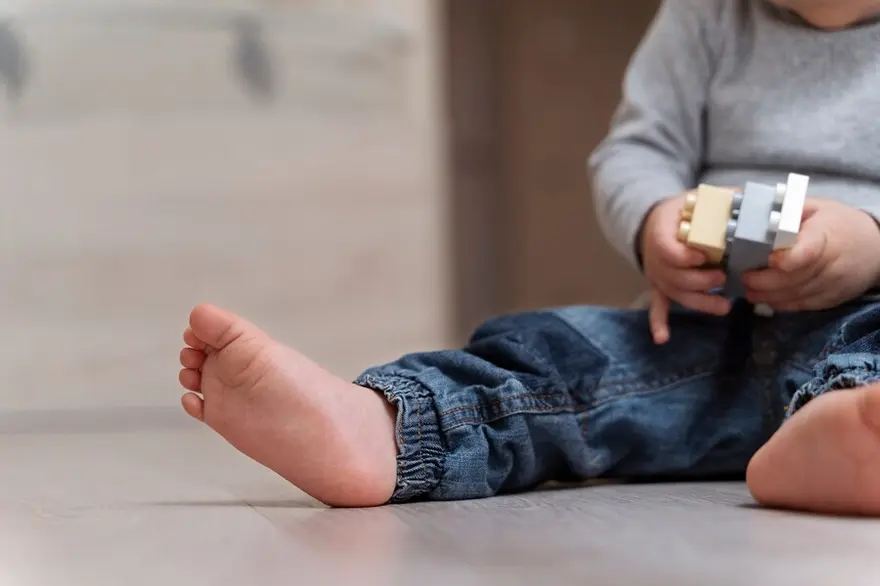Preventive Healthcare
Everything You Need to Know About Dehydration: The Silent Disease
2760 Views
0

Two-thirds of our body is made up of water. It helps digestion, flushes out toxins and waste materials, keeps your skin healthy, and lubricates joints. But what happens when you do not consume enough water? You have probably felt it but don't recognise the signs. Let's learn more about dehydration and how it affects your body.
What is Dehydration?
Dehydration is when you lose so much body fluids that it can't function properly. It usually occurs when your water intake is less than the amount you are losing.
There are days when you want to consume as much liquid as possible. It's usually when the weather is hot or you spend more time in the sun. This feeling of being parched and thirsty is one of the first signs of dehydration. You may also often feel dehydrated when you sweat a lot, either because of the heat or exercise or when you are sick and lose water because of diarrhoea, vomiting, or fever. If you do not drink enough water or take any medication that causes you to pee more frequently, you could also risk getting dehydrated.
When you are not adequately hydrated, your body initially reacts to feeling thirsty. Drinking fluids, especially water, immediately can help keep your body hydrated. Mild dehydration symptoms can often be treated by drinking a glass of water. However, dehydration isn't a manageable condition. It can often be overlooked, especially in ageing individuals who do not drink enough water or babies who cannot convey their thirst or recognise dehydration effects.
What are the Symptoms of Dehydration?
The lack of water in your body upsets the balance of minerals, which in turn affects how it functions. Here are some of the early warning signs and body dehydration symptoms:
- A feeling of lightheadedness and thirst
- Fatigue
- Dark-coloured urine with a strong odour
- A dry mouth
- Passing less urine than usual
In the case of infants, the baby may show the following dehydration symptoms:
- A soft, sunken spot on their head
- No or few tears when they cry
- Perpetual drowsiness
- Fewer wet diapers/nappies (less than six a day)
In kids, one can witness the following dehydration symptoms:
- Dry lips and tongue
- No wet diapers or urination for over eight hours in toddlers
- Sunken eyes
- Dry or wrinkled skin
- Rapid or deep breathing
- Botchy hands and feet that are cold to the touch
Chronic dehydration symptoms include:
- Headaches, confusion, and delirium
- Dizziness and weakness
- Loss of appetite but an increased craving for sugar
- Faster heart rate but low blood pressure
- Flushed skin
- Cramps in muscles
- Swollen feet
- Chills or heat intolerance
- Constipation
Many people, especially older individuals, do not feel thirsty until they are already dehydrated. On the other hand, some small children may not recognise their thirst and cannot convey that need to their parents, raising the question of how to control dehydration in kids. Thus, giving water after every meal and keeping track of their water intake is one of the best ways of dehydration prevention. This helps to increase your water intake even when you are ill or during hot weather. Symptoms of dehydration are also common in women as they drink less fluids throughout the day.
What are the Complications of Dehydration?
If you or your child are displaying chronic dehydration symptoms, getting medical care as soon as possible is essential. Severe dehydration can lead to complications like :
- Electrolyte imbalance
- Heat-related illnesses (heatstroke)
- Kidney issues like kidney failure or stones
- Shock, coma, sometimes death
How is Dehydration Diagnosed?
If you are feeling thirsty, you may already be dehydrated, making thirst the easiest way of dehydration assessment. Otherwise, based on your symptoms and a physical examination, your healthcare professional may also be able to tell if you may be suffering from dehydration. Some laboratory tests can also help in the diagnosis of dehydration These include:
- Blood tests that check the levels of electrolytes
- Kidney function
- Urine tests
What are the Levels of Dehydration?
Primarily, there are three levels of dehydration, namely
Mild
In this type of dehydration, simply consuming more liquids in the form of water or with a drink containing added electrolytes, you can feel better in a short period. This is usually enough when you display body dehydration symptoms like significant sweating or loss of fluids.
Moderate
In this case, you will need urgent care in the hospital or emergency room. Your doctor will often give you hydration through the veins with an IV.
Severe
If you display chronic dehydration symptoms, calling your local emergency service number or visiting your doctor immediately is best.
What is the Fastest Way to Cure Dehydration?
Drinking more water and hydrating with oral rehydration powder sachets that you mix with water are some of the best and fastest methods of dehydration treatment at home. If your child is showing signs of dehydration, it is best to contact your child's healthcare provider and carefully follow the provided instructions.
Some additional points to remember are:
- Vomiting and Diarrhoea are the most common causes of dehydration in children. So, never give your child below two years of age over-the-counter medicines for diarrhoea. Consult the healthcare provider before administering any medication.
- Encourage your child to drink more water and unsweetened liquids if they display dehydration signs. Juices, sugary sodas, and flavoured jellies can further irritate the diarrhoea causing further dehydration.
- If your infant is being breastfed, continue doing so normally; the water content in breastmilk will help hydrate your baby.
- Electrolyte solutions, if recommended, can help improve the balance of minerals in the body.
- Gradually increase the amount of food and fluids you give your child.
- Encourage your child to rest more
- Watch your child to ensure the symptoms of dehydration don't get worse
Hospital treatment of dehydration includes:
- Intravenous administration of fluids
- Acetaminophen for fever
- Rest
- Monitoring your electrolyte imbalance
Can Dehydration be Prevented?
It is better to prevent dehydration instead of trying to cure it at a later stage. Steps for dehydration prevention include:
- Keep track of your water intake
- Drink water throughout the day and not just during or after meals
- Check your urine to ensure it is clear, straw or pale coloured and not any darker.
- Active people and those who play sports need to have at least 16 to 20 ounces of fluids an hour or two before the activity and 6 to 12 ounces for every 10 to 15 minutes they are outdoors.
- Once you finish the activity, drink at least 16 to 24 ounces of water to replace the lost fluids.
- If you have a more sedentary lifestyle, you must also keep track of your water intake. While eight glasses of water per day is the norm, the exact amount will depend on different factors, such as your weight, age, level of activity, climate, clothing, and many other factors.
Conclusion
When your body expels more fluids than you take, you may suffer from dehydration. However, dehydration prevention is easy if you drink more water and unsweetened juices. Keeping track of your minerals and other nutrients with the help of diagnostic tests can help ensure you keep up with your health. Metropolis Labs offers various diagnostic tests and healthcare packages based on gender, age and health conditions. Check out the entire list of diagnostic tests available and book an appointment today for a comprehensive body check-up.













1701259759.webp)









 WhatsApp
WhatsApp